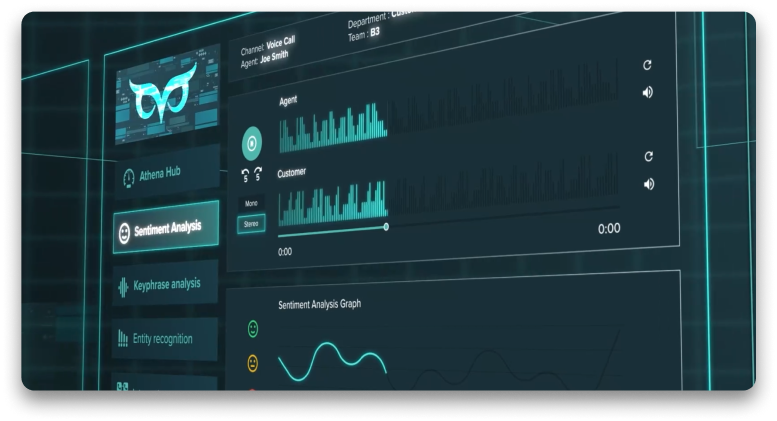Conversational AI
In the past decade, Conversational AI has emerged as a transformative force for businesses, particularly in enhancing customer experience and engagement. Recognizing its significance, companies across various sectors are increasingly investing in AI capabilities to streamline operations, communications, and customer interactions, avoiding the risk of lagging behind competitors.
Conversational AI’s ability to mimic human language and provide accurate responses has revolutionized customer interactions, allowing businesses to handle a higher volume of inquiries efficiently. Recent advancements, exemplified by chatbots like ChatGPT-4, Grok or Gemini, continue to push the boundaries of AI capabilities, sparkling speculation about where Conversational AI is headed in the future and what it means for both businesses and customers. This article aims to delve into the fundamentals of Conversational AI, its applications across industries, the associated benefits, and its implications for both customers and human agents.
What is Conversational AI?
Conversational AI, in essence, is a form of Artificial Intelligence crafted to engage in conversations that mimic human cognition and interaction. However, the question arises: what exactly constitutes human cognition and interaction, and to what extent must AI emulate these qualities to be deemed “intelligent”? This issue has been a subject of debate among experts, particularly in light of recent technological advancements such as ChatGPT-4.
One influential framework for addressing this question dates back to 1950 when Alan Turing, often regarded as the pioneer of Artificial Intelligence, proposed the “Imitation Game.” Turing suggested that if a machine, referred to as X, can engage in extensive conversations with humans and consistently deceive them into believing they are conversing with another human, even when explicitly tested with questions aimed at discerning its true nature, then that machine should be considered intelligent.
Today, Conversational AI seems closer than ever to reaching that ideal. Renowned philosopher David Chalmers, recognized for his exploration of human consciousness and Artificial Intelligence, said about ChatGPT: “GPT-3 is one of the most interesting and important AI systems ever produced. This is not just because of its impressive conversational and writing abilities. It was certainly disconcerting to have GPT-3 produce a plausible-looking interview with me. GPT-3 seems to be closer to passing the Turing test than any other system to date.”
Given the rapid recent advances in Generative and Conversational AI, it is to be expected that the capacities of AI chatbots will improve exponentially over the next few years. Modern Conversational AI models harness technologies such as Natural Language Processing (NLP) and Machine Learning, empowering them to comprehend the intricacies of human language more effectively and provide responses that are more pertinent and comprehensive. Let’s see how that works in the next section.
How does Conversational AI work?
NLP
NLP (Natural Language Processing) is vital for Conversational AI Models, enabling them to comprehend human language nuances like syntax, semantics, and context. Equipped with advanced algorithms, NLP enables chatbots to interpret user input, discern intent, and engage in sophisticated, context-aware conversations beyond basic keyword recognition. This integration enhances chatbots’ ability to recognize explicit commands while grasping natural language subtleties, resulting in more personalized interactions and an enhanced user experience.
Key NLP components include Automatic Speech Recognition (ASR), Word Sense Disambiguation, Named Entity Recognition (NER), and Sentiment Analysis. ASR converts speech to text, Word Sense Disambiguation refines language understanding by analyzing word context, NER categorizes entities like names or locations, and Sentiment Analysis evaluates emotional tone in text.
Machine Learning
Machine Learning (ML) enables Conversational AI models to glean insights from user interactions, anticipating needs without explicit programming, thus facilitating fluid conversations. Deep Learning (DL) elevates chatbots by enabling them to comprehend intricate patterns and deliver refined, contextually fitting responses. Natural Language Understanding (NLU) further enriches interpretation by considering not only the literal meanings of words but also the contextual nuances in which they are employed. This comprehensive comprehension empowers chatbots to offer more pertinent, context-aware, and human-like responses, ultimately enhancing the overall conversational experience.
Today, Conversational AI finds utility across diverse industries, serving as a valuable asset for businesses seeking to streamline their operations, particularly those involving customer interactions. Let’s explore some illustrative examples in the following section.
What industries use AI Chatbots?
Customer Service and Support
In the customer service domain, Conversational AI, exemplified by intelligent conversational bots like Athena AI, revolutionizes business-customer interactions. These chatbots efficiently address diverse customer inquiries, delivering instant guidance and assistance. With their natural language processing capabilities, these agents comprehend user queries, offer relevant information, and seamlessly facilitate transactions.
The round-the-clock availability of chatbots ensures continuous support, boosting efficiency and cost-effectiveness for businesses. By automating routine tasks, chatbots liberate human agents to concentrate on more intricate and value-added interactions, thereby elevating overall customer satisfaction. Integration with workflow automation tools further enhances efficiency, reducing human workload and enhancing process optimization.
Retail and E-commerce
In retail and e-commerce, Conversational AI transforms the customer experience by providing personalized assistance to online shoppers. Chatbots seamlessly integrate into websites, assisting users at every stage of their journey. From aiding customers in product discovery through natural language searches to delivering tailored recommendations based on preferences and purchase history, chatbots enhance engagement and streamline the shopping experience. They excel in managing order-related inquiries such as tracking shipments and processing returns, augmenting customer satisfaction, increasing sales, and fostering brand loyalty.
Healthcare
Conversational AI makes significant advancements in healthcare, enhancing patient engagement and optimizing administrative workflows. Virtual health assistants, powered by conversational AI, offer comprehensive support ranging from medical condition information to appointment scheduling and medication reminders. By automating administrative tasks like appointment bookings and prescription refills, conversational AI enables healthcare professionals to dedicate more time to patient care. Additionally, it facilitates remote patient monitoring, supporting proactive and personalized healthcare solutions.
Finance and Banking
In finance and banking, conversational AI enriches customer interactions, streamlines processes, and strengthens security measures. Chatbots efficiently handle routine customer queries related to account details, transaction history, and financial advice, contributing to enhanced customer service. Moreover, these intelligent agents play a vital role in fraud detection by analyzing transaction patterns. By providing instant and personalized financial guidance and ensuring the security of financial transactions, conversational AI enhances the efficiency and user-friendliness of banking applications, meeting the evolving needs of modern consumers.
Human Resources
Conversational AI revolutionizes human resources by automating various aspects of the employee lifecycle. From recruitment to ongoing support, chatbots assist in initial screenings, candidate queries, and interview scheduling, streamlining the recruitment process. During onboarding, they provide essential information on company policies and procedures. Additionally, HR chatbots handle routine employee inquiries, such as leave requests, freeing HR professionals to focus on strategic initiatives.
If you enjoyed reading this, you might also be interested in…
Customer Service AI
Contact Center Artificial Intelligence
AI Based Contact Center
AI Agent



